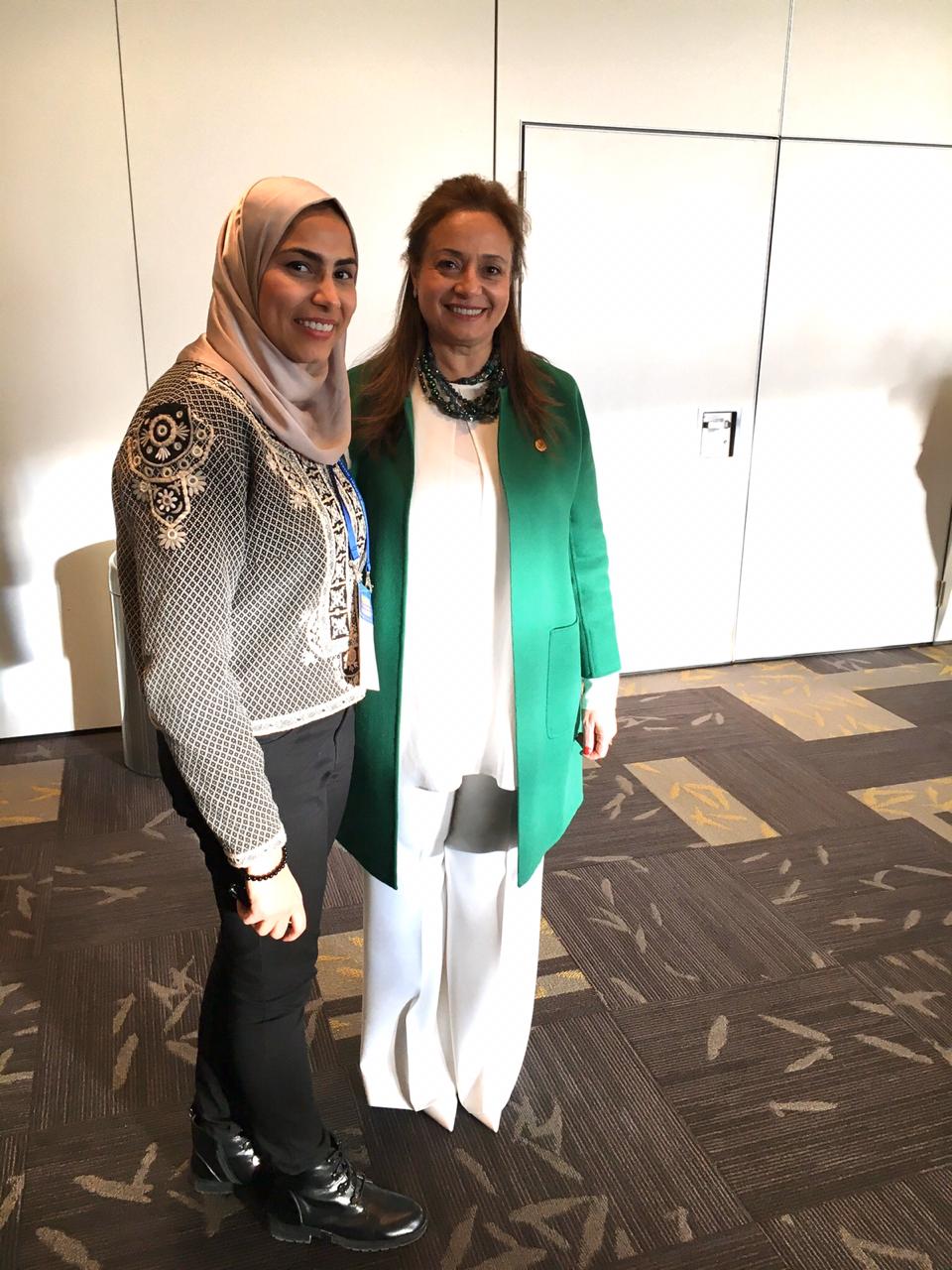STOCKHOLM – 23 February 2020: The Commissioner for Infrastructure and Energy at the African Union Commission (AUC) Amani Abou Zeid called up on more African states to ratify the road safety charter at the African Union to reduce traffic deaths across the continent.
The charter in order to enter into force must be ratified by 15 out of the 55-member countries, while the current number of ratifying countries is 13 countries only, Abou Zeid told Egypt Today on the sidelines of the 3rd Global Ministerial Conference on Road Safety in Stockholm.
Adopted in January 31, 2016, the 31-article charter serves as a policy framework for road safety improvement in Africa, requiring state parties to strengthening pre-hospital and post-crash care services, identifying sustainable funding sources, develop sustainable and accurate national databases on road crashes among other policies.

AU Commissioner for Infrastructure and Energy Amani Abou Zeid - Courtesy of Amani Abou Zeid with Egypt Today's reporter Nourhan Magdi
Africa has the highest rate of road deaths worldwide, she said, adding “we lose 292000 lives per year, or 21% of global road deaths and that despite the fact that the number of motorized vehicles on the continent, is barely 3% of the world´s total.”
The African continent is the most youthful, but in few years, it will be the most densely populated, which is one of the challenges facing the continent. “For the first time, and amid rapid urbanization, more than half a billion people are added to Africa’s urban population by 2040,” she continued.
Africa practices in road safety
AU commissioner explained that there are some measures that African states must consider, some of which are traditional such as: ensuring safe road designs that reflect international best practices, enforcing law and importing safe and sound vehicles.
She added that Egypt has recently taken into account such technical details in designing its new roads, as well as the random drug tests for drivers to reduce the driving under the influence violation.
Rwanda set a successful example for countries integrating technology in traffic, according to Abou Zeid, who stated that vehicles in the African country has signs on the front, which allow surveillance cameras record if drivers exceed the speed limit, which as a result affect the drivers’ credit score, in a bid to reduce traffic crashes.
“There are three smart corridors that link East Africa to southern parts of the continent, which are designed not only to manage traffic conditions, but also to manage any accidents that may occur,” she added.

AU Commissioner for Infrastructure and Energy Amani Abou Zeid after finishing her speech at the Global Ministerial Conference on Road Safety in Stockholm
Abou Zeid further urged for providing post-crash emergency care, especially on high ways, saying that such care requires concerted efforts of several ministries including health, transport and interior, as well as the ambulance. “A person might not die of an accident, but would lose life due to lack of necessary medical care on time,” she said.
Regarding ways of improving road quality, she explained that there are two ways, the first one is called Retrofitting, which is introducing amendments and reforms into already existing roads, like adding bike lanes or allocating narrow bridges for pedestrians like in Sweden.
However, she said that retrofitting is not an easy way, and very expensive. While for the second approach, where countries build new roads considering road safety measures, is easier, and has been implemented in countries including Egypt.
What is Egypt's next steps?
“The work to improve road safety is a continuous work that does not stop, as every area and every street has a different challenge that requires specific effort,” Abou Zeid explained as she lists a number of considerations that Egypt should focus on to upgrade road safety status.
Controlling speed limits was on the top of the factors Abou Zeid listed, as she cited the Swedish Minister of Transport’s plan to cut down speed limits in Swedish cities to 30 km/hour.
She further said that Egypt needs to toughen procedures, not only penalties, like making obligatory to wear seat belts and helmets, questioning: “How many people do we see wearing helmets on motorcycles, except from Rwanda, where the practice is mandatory?”
The third element was to remove all commercial activities off the sidewalks, which should be allocated for pedestrians, who as a result walk in the roads, risking their lives.
“There is a lot that Egypt can do to significantly improve road safety, and remains a role model to African countries,” Abou Zeid added.
She also underscored the importance of setting common definitions for all road safety indicators, which help in better policy development, comparison and evaluation.
Egypt was part of the United Nation’s decade of action program that started 2011 with an ambitious target to halve global number of deaths from road accidents by 2020. The country embarked on an extensive local program that included: toughening punishment on traffic violators, building new road networks, renovating bridges and launching drug-driving tests.
The Cabinet’s Information Center announced that Egypt jumped 89 places in roads quality rankings by The Global Economy from the 118th in 2014 to the 29th in 2019.
The 3rd Global Ministerial Conference on Road Safety kicked off in Stockholm, Sweden Wednesday, where around 1,700 delegates from 140 countries are attending to share successes and lessons from implementation of the Global Plan for the Decade of Action for Road Safety 2011-2020.


Comments
Leave a Comment